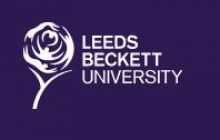
A mass snowball fight involving hundreds of Leeds students would usually raise a few wry smiles to leaven the winter gloom. But the lockdown-flouting event in Hyde Park – promoted on Facebook as a battle between University of Leeds and Leeds Beckett University to decide which institution “reigns supreme” – did not impress a lot of onlookers. While one student told Sky News that it was “a welcome laugh that people needed”, others tweeted that the gathering was “disrespectful” to NHS staff. A nurse from Harrogate went further, calling the event “horrific”. “This virus won’t go away when people are continuing to break the rules. One word...Idiots,” said the appalled health worker, reported Leeds Live.
Graduates who left university before the first tuition fees were introduced in the UK in the late 1990s may have looked on over the last 20 years with pangs of guilt – or, worse, smugness – as subsequent cohorts have faced increasing debt as a result of constant shake-ups of the system. But if an idea to bring in a new tax on all graduates – pre and post the introduction of fees – gains traction, then they could at last share in the pain. Alan Roff, former deputy vice-chancellor at the University of Central Lancashire, says in a paper published by the Higher Education Policy Institute on 21 January that universities could be part-funded by such graduate contributions as a replacement for the current student loans system, which he describes as being “in ruins” owing to mounting public costs. He does not suggest that the tax be backdated but says it could create more intergenerational equity if applied now to all graduates.
Another option to highlight the problem of mounting student debt might be to turn it into the world’s most expensive artwork. That might sound like a joke, but it is what has happened in the US where a beer brand has unveiled an installation at New York’s Grand Central Station featuring thousands of college diplomas suspended in mid-air. Low-calorie-beer maker Natural Light says Da Vinci of Debt is the most costly piece of art ever because the total cost of each degree – on average $180,000 (£133,000) – makes it worth more than $470 million, Forbes reported. This would put it above Leonardo Da Vinci’s Salvator Mundi, the most expensive artwork sold at auction. It is part of a long-running campaign by the brand on the huge toll left by student debt, but why it takes a beer company to help the issue hit home is probably the key question for US politicians.
It wasn’t just Donald Trump who riled up armed protesters prior to the storming of Capitol Hill. Chapman University professor John Eastman was also among the speakers to reiterate baseless claims that Joe Biden and Democrats had stolen the presidential election. “We know there was fraud,” the conservative law professor told crowds who would later smash their way into Congress. That speech proved the final straw for his private California institution, which later announced that it had negotiated the exit of its former dean of law. Confirming his retirement, Professor Eastman offered a lengthy summary of his failed claims of voter fraud and said he was leaving because his complaining colleagues “have created such a hostile environment for me that I no longer wish to be a member of the Chapman faculty”.
It is not long ago that the only way to read someone’s old PhD thesis was to dig it out from the university archives. While few want to return to that pre-digital era, easy access was taken a bit too far when hundreds of PhD dissertations from Durham University’s online repository were offered for sale on Amazon’s Kindle service for as much as £9.99 each. It is thought the e-books – published under the author name Durham Philosophy – were distributed by a third party, and they were removed by Amazon following a complaint from the university. While some scholars were rightly annoyed at the breach of copyright, others saw the funny side, particularly around the arbitrary pricing of the stolen material. “Is it bad that I’m secretly chuffed that mine is being sold for 5p more than yours?” said one academic to his colleague online.
Register to continue
Why register?
- Registration is free and only takes a moment
- Once registered, you can read 3 articles a month
- Sign up for our newsletter
Subscribe
Or subscribe for unlimited access to:
- Unlimited access to news, views, insights & reviews
- Digital editions
- Digital access to THE’s university and college rankings analysis
Already registered or a current subscriber?





